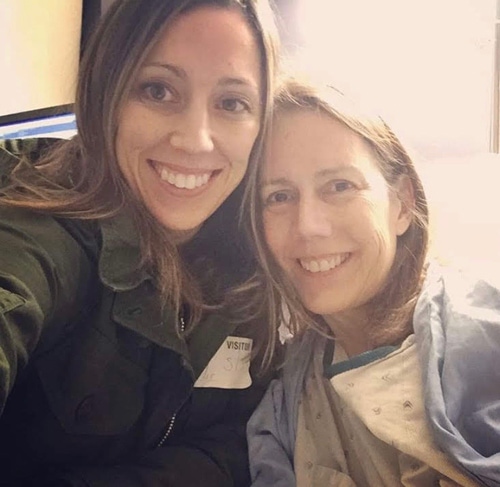“Although the world is full of suffering, it is also full of the overcoming of it.” -Helen Keller
Losing a loved one is never easy. I know this first hand. I lost my mother to cancer a little over a year ago. She was on hospice, she knew she was dying, I knew she was dying, but the loss still hurt in ways I couldn’t imagine. Having lost my father to cancer at age 10 didn’t make losing a parent any easier to accept. Now, the truth is, we all will experience loss at some point, death is a part of life that we try not to think about, until we can’t hide from it any longer. I can’t say I’ve done everything right since my mother’s death; I’ve felt sorry for myself, I’ve indulged myself, I’ve taken an easier path at times because I thought “I deserve this reward.” I’ll never stop missing my parents, however I do feel I’ve been able to forge a new path and move forward in a positive way. Here are a few things I’ve learned over the past year that have helped me deal with my grief and loss.
Grief Can Come at Unexpected Times
At first I felt guilty for enjoying things, or not grieving appropriately. I found that coping with loss doesn’t always follow the steps you expect: denial, anger, bargaining, depression, acceptance. Feelings can be sudden and overwhelming at times. I’m learning to not feel guilt for grieving “wrong.” The grieving process is unique to each person rather than a formula to follow. A song, a scent, or a place can bring up a certain memory that’s filled with memory and I’ve learned to accept that these unexpected emotions may arise.
You’re Not Alone

Dr. Jessica and her mom during one of her treatments
It was easy for me to feel like I was alone in my grief. I spent plenty of time feeling sorry for myself, thinking no one could understand my loss, and avoiding talking about something that would make me so sad. When I started feeling more comfortable sharing my story I realized that many other people had similar losses in their life. I found that sharing my story and hearing others perspectives actually helped me to process some of the grief. The more I pushed myself to share my feelings, the easier it became to discuss, and the less alone I felt. Being able to acknowledge and accept your feelings is important as you never know how your perspective could help others in the future.
Good Things Can Still Happen, and Will
I try to remind myself that my mom wouldn’t want me to stop participating in my life or stagnate. Feeling sad started to actually make me feel bad, I had gained weight and wasn’t sleeping well. When I viewed my loss as a catalyst for change and a healthier lifestyle I started to feel better and was able to replace negative feelings with positive ones. Being able to see the good around you and focus on positivity helps you to stay present.
They’re Never Really “Gone”
“Unable are the loved to die. For love is immortality.” -Emily Dickinson
Focusing on the positive memories and the legacy your loved one leaves behind, helps keep them alive. Journaling or sharing stories with others that knew my mom helps me to keep those memories fresh. There are other ways as well to show your love in the memory of the deceased. For example, dedicate a tree, a star, or a bench to the memory of a loved one. Walk their favorite path or have a celebration in their honor. Regardless of your religious beliefs, even with the physical body gone, the influence of our loved one can live on.
How Pacific Psych Can Help
We offer the expertise of a board-certified psychiatrist as well as our psychotherapists and psychiatric physician assistants that offer traditional psychiatric medication management and psychotherapy, as well as interventional psychiatric treatments such as IV Ketamine infusions, Spravato (esketamine), and Transcranial Magnetic Stimulation (TMS).
Grieving and mourning is not a pathologic condition by definition, though it can be very painful. For whatever reason, the grieving process can become “stuck” in certain phases, which can lead to symptoms of depression, anxiety, and insomnia. When and if this happens, a mental health professional can help guide someone who is grieving “out of the darkness,” whether with brief psychotherapy, or with some other type of psychiatric intervention. We offer telepsychiatry to all California residents. You may also find some of our other posts helpful.

